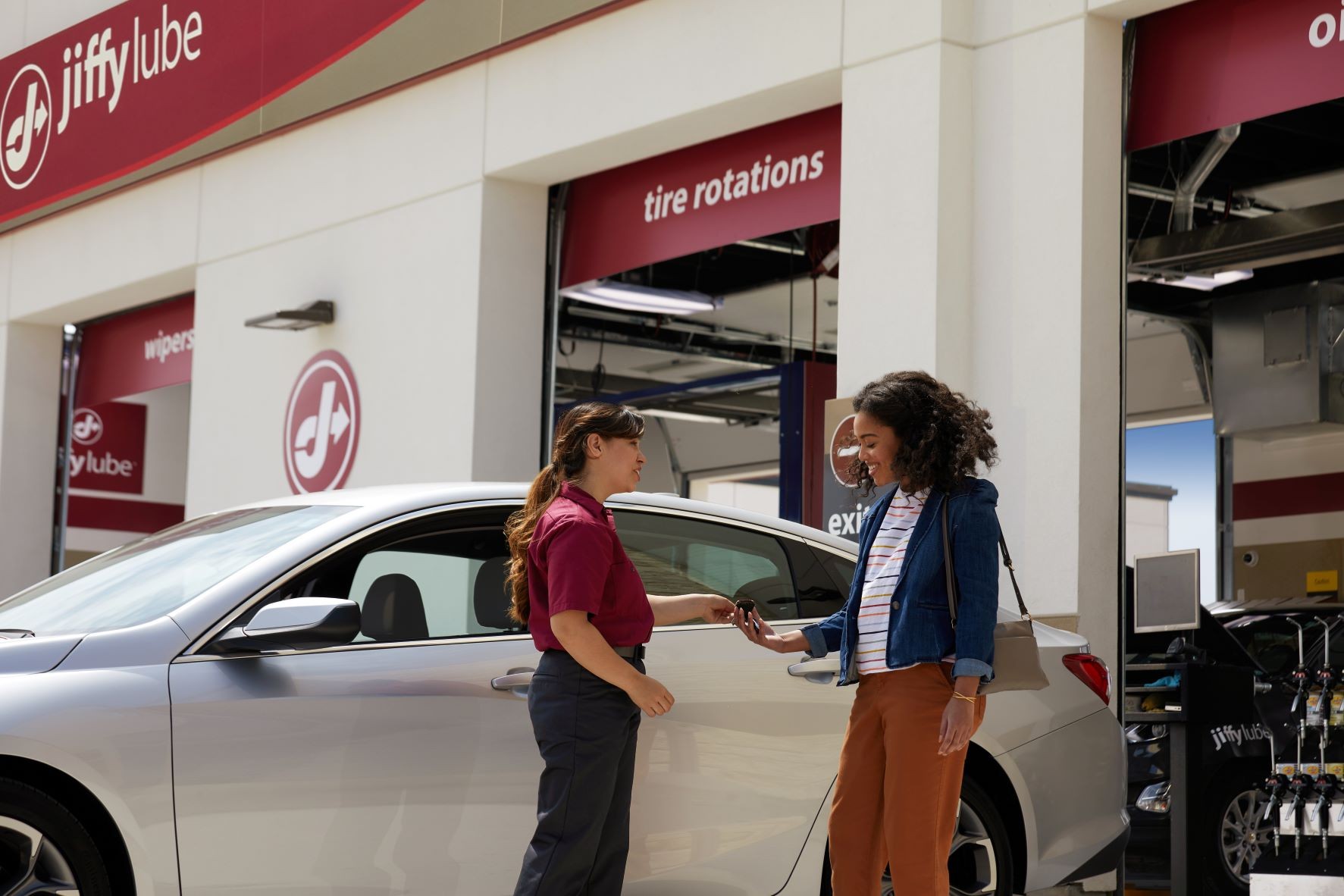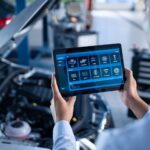Modern cars are marvels of engineering, packed with sophisticated computer systems that control everything from the engine to the air conditioning. When something goes wrong, these systems often trigger warning lights on your dashboard. This is where car diagnostic tests come in handy, acting like a health check for your vehicle’s complex electronic network. But when that check engine light illuminates or your car starts acting strangely, the immediate question arises: who does diagnostic tests on cars?
Understanding where to go for a diagnostic test and what to expect is crucial for every car owner. Let’s explore the different options available to ensure your vehicle gets the expert attention it needs.
Understanding Car Diagnostic Tests
Before diving into who performs these tests, it’s helpful to understand what a car diagnostic test actually is. In essence, it’s a digital analysis of your car’s computer systems. Here’s a simplified breakdown of the process:
- Software Activation: When you start your car, specialized software in the vehicle’s computer springs into action.
- System Monitoring: This software continuously monitors various components and systems, including the engine, transmission, brakes, emissions, and more.
- Data Reporting: The system gathers data from sensors throughout the car and generates reports.
- Trouble Identification: Diagnostic tools can access and analyze these reports to pinpoint any malfunctions or issues.
This digital approach allows for early detection of problems, often before they become serious or lead to costly repairs. It’s a far cry from older methods that relied solely on manual checks and guesswork.
Who Performs Car Diagnostic Tests? Your Options
When your car needs a diagnostic test, you have several choices, each with its own advantages and considerations:
Dealership Service Centers
Dealerships are often the first place people think of, especially for newer vehicles. They employ technicians specifically trained on your car’s make and model.
- Pros:
- Specialized Expertise: Dealership technicians have in-depth knowledge and training specific to the brand they represent.
- Advanced Equipment: Dealerships typically have access to the most up-to-date diagnostic tools and software from the manufacturer.
- Warranty Work: If your car is still under warranty, dealerships are usually authorized to perform diagnostic tests and repairs covered by the warranty.
- Cons:
- Higher Cost: Dealership service tends to be more expensive compared to independent shops or auto parts stores.
- Appointment Scheduling: Dealerships can be busy, potentially leading to longer wait times for an appointment.
Independent Repair Shops
Independent car repair shops are a popular alternative, offering a wide range of services and often providing a more personal touch.
- Pros:
- Cost-Effective: Independent shops generally have lower labor rates than dealerships.
- Personalized Service: You often develop a relationship with the mechanics at an independent shop.
- Broad Expertise: Many independent shops have experienced technicians capable of working on various makes and models.
- Cons:
- Varied Equipment: Diagnostic equipment can vary between independent shops. It’s worth asking about their diagnostic capabilities.
- Specialized Knowledge: While skilled, independent technicians may not have the same level of brand-specific expertise as dealership technicians for very specific or new models.
National Auto Service Chains
National chains, like Jiffy Lube, offer a convenient and often quicker option for car diagnostic tests. They are readily accessible in many locations and can be a good choice for routine diagnostics.
- Pros:
- Convenience and Accessibility: Numerous locations and often no appointment needed for basic services.
- Standardized Service: Chains often have standardized procedures and training for their technicians.
- Competitive Pricing for Basic Services: Diagnostic tests at chains can be competitively priced, especially for initial scans.
- Cons:
- Technician Turnover: Staff turnover can be higher in chain environments, potentially affecting consistency in service quality.
- Focus on General Maintenance: Chains may be better suited for general maintenance and less complex diagnostic issues.
Auto Parts Stores
Some auto parts stores offer free basic diagnostic scans, primarily reading the Diagnostic Trouble Codes (DTCs) that trigger the check engine light.
- Pros:
- Free Initial Scan: A quick and free way to get the DTCs read.
- DIY Assistance: Staff may offer basic advice based on the DTC code.
- Cons:
- Limited Analysis: They typically only provide the DTC code, not in-depth analysis or troubleshooting.
- Sales Focus: The primary goal is often to sell parts related to the detected code.
- Not a Substitute for Professional Diagnosis: Free scans are a starting point, not a comprehensive diagnostic solution.
DIY at Home
For those who are technically inclined and equipped, performing a basic car diagnostic test at home is possible. This involves purchasing an OBD-II scanner and using diagnostic apps on your smartphone or laptop.
- Pros:
- Cost Savings (Long Term): Once you own the equipment, you can perform tests yourself.
- Convenience: Test your car at your own time and pace.
- Learning Opportunity: Gain a deeper understanding of your car’s systems.
- Cons:
- Initial Investment: OBD-II scanners and software can cost money.
- Technical Knowledge Required: Understanding DTC codes and interpreting data requires some technical knowledge.
- Limited Capabilities: Home scanners may not have the advanced capabilities of professional tools.
- Risk of Misdiagnosis: Incorrect interpretation of data can lead to wrong repairs.
 Woman talking with a Jiffy Lube technician about her car diagnostic test
Woman talking with a Jiffy Lube technician about her car diagnostic test
Alt text: Car diagnostic service at Jiffy Lube: A female car owner discusses diagnostic test results with a Jiffy Lube technician in a service bay.
When is a Car Diagnostic Test Needed?
Knowing when to seek a diagnostic test is as important as knowing who performs them. Here are common scenarios:
- Check Engine Light or Warning Lights: This is the most obvious sign. Any illuminated warning light indicates a potential issue that a diagnostic test can help identify.
- Drivability Issues: Problems like rough idling, stalling, hesitation during acceleration, unusual noises, or decreased fuel efficiency can warrant a diagnostic test.
- Routine Maintenance Check: Some vehicle owner’s manuals recommend diagnostic checks as part of scheduled maintenance. Even without warning lights, a diagnostic test can uncover potential issues early.
- Pre-Purchase Inspection: Before buying a used car, a diagnostic test can reveal hidden problems not apparent during a visual inspection.
Understanding the Cost of Car Diagnostic Tests
The cost of a car diagnostic test can vary depending on where you go and the complexity of the issue.
- Basic Scan (DTC Reading): Free at some auto parts stores. Standalone basic scanners for home use start from around $20-$50.
- Dealership and Independent Shops: Typically range from $80 to $150 for a comprehensive diagnostic service. Prices can vary based on location and shop rates.
- In-Depth Analysis: If the initial scan reveals complex issues requiring more investigation, the diagnostic cost may increase. This could involve more time spent by technicians and specialized equipment.
Important Note: Always clarify the diagnostic fee upfront and understand what it includes. Some shops may offer to waive the diagnostic fee if you proceed with the recommended repairs at their facility.
Choosing the Right Provider
Selecting the right place for your car diagnostic test depends on your specific needs and circumstances.
- For Warranty or Brand-Specific Issues: Dealerships are often the best choice.
- For General Diagnostics and Repairs: Independent shops offer a good balance of cost and expertise.
- For Quick Checks and Convenience: National chains are suitable for routine diagnostics and readily accessible.
- For DIY Enthusiasts and Basic Code Reading: Auto parts stores and home scanners can be useful.
Ultimately, the best approach is to choose a provider you trust and who can clearly explain the diagnostic process, results, and recommended solutions. By understanding your options for “who does diagnostic tests on cars,” you can ensure your vehicle receives the appropriate care, keeping you safely on the road.

